
Picture this: Around 1346 BC, in the sun-baked city of Amarna, Egypt, a woman was laid to rest with an intricate hairstyle—70 individual hair extensions meticulously fastened to her natural hair. When archaeologists discovered her remains in 2014, they uncovered not just a burial but a testament to humanity’s timeless obsession with transformative hair. Fast forward 3,300 years, and extensions have evolved from ancient status symbols to global beauty essentials.
The Birth of Extensions: Egypt’s Hair Revolution
Long before Instagram trends, ancient Egyptians pioneered hair enhancement. Excavations reveal they:
- Used human hair or wool/linen braids as extensions (bundles found in toiletry baskets prove their prevalence).
- Mastered early “tape-in” methods: attaching strands with natural resins/beeswax.
- Dyed hair with henna (orange-red) or animal blood (to “darken” grays).
- Preferred shoulder-length styles with 0.5–1 cm braids, secured using animal-fat gels for hold.
Egyptians weren’t alone. African tribes used shells, beads, and thread to create decorative braids—a tradition that later influenced modern weft and weaving techniques.
Evolution History of Hair Extensions
1980s–1990s
Weft Hair Extensions
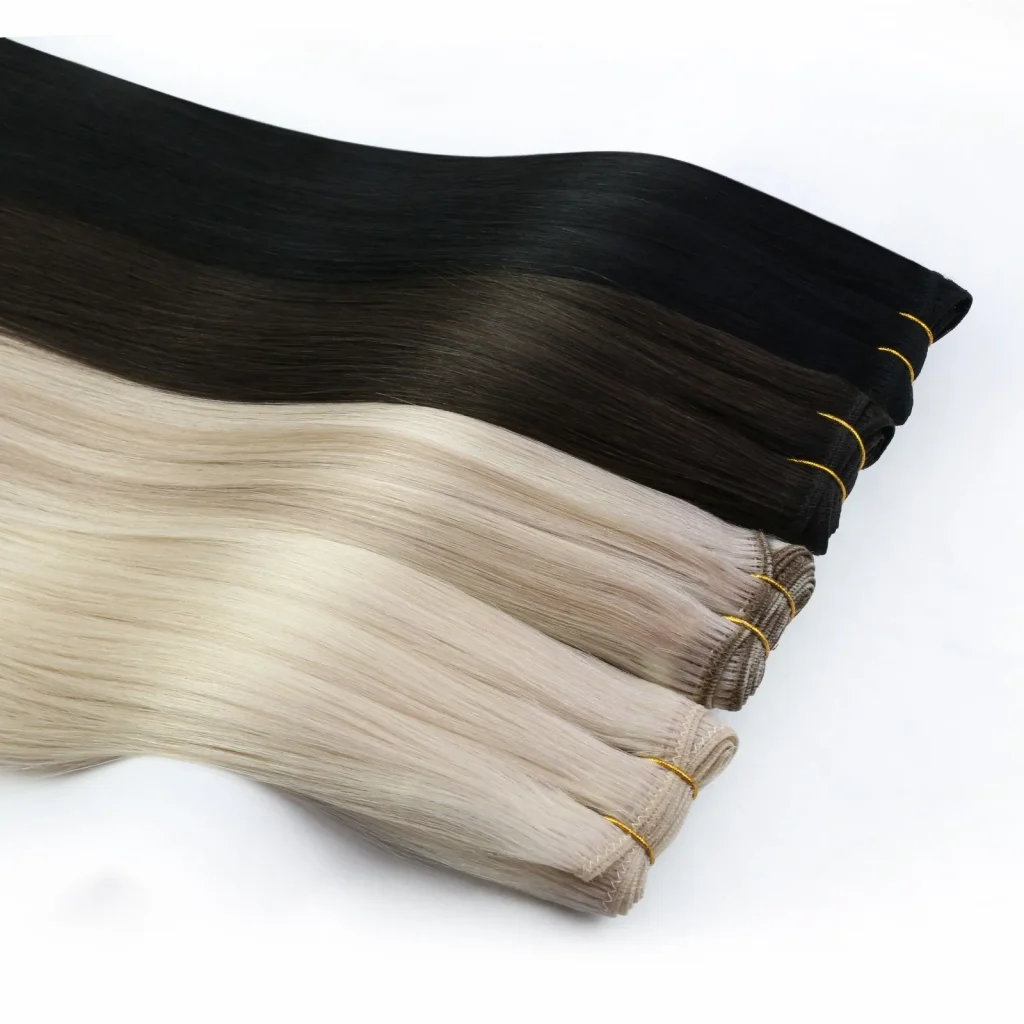
As one of the earliest popularized hair extension types, weft hair extensions secure hair wefts to natural hair through braiding or sewing techniques, ideal for long-term styling.
Early 2000s
Clip-In Extensions
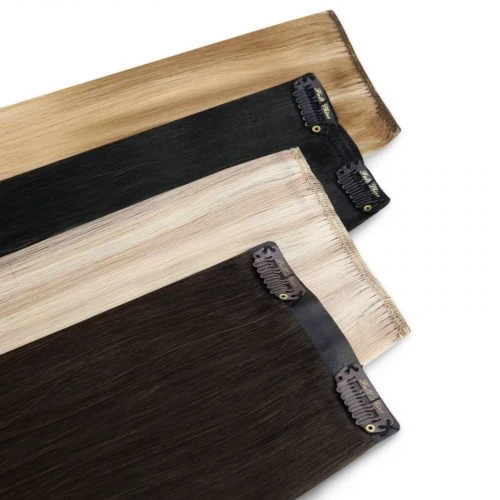
In the early 2000s, clip-in extensions gained rapid popularity due to their lack of no professional installation required and easy removability. Inspired by early hairpin technologies, they were gradually commercialized after 2001, becoming a popular choice for daily styling.
Ponytail Extensions
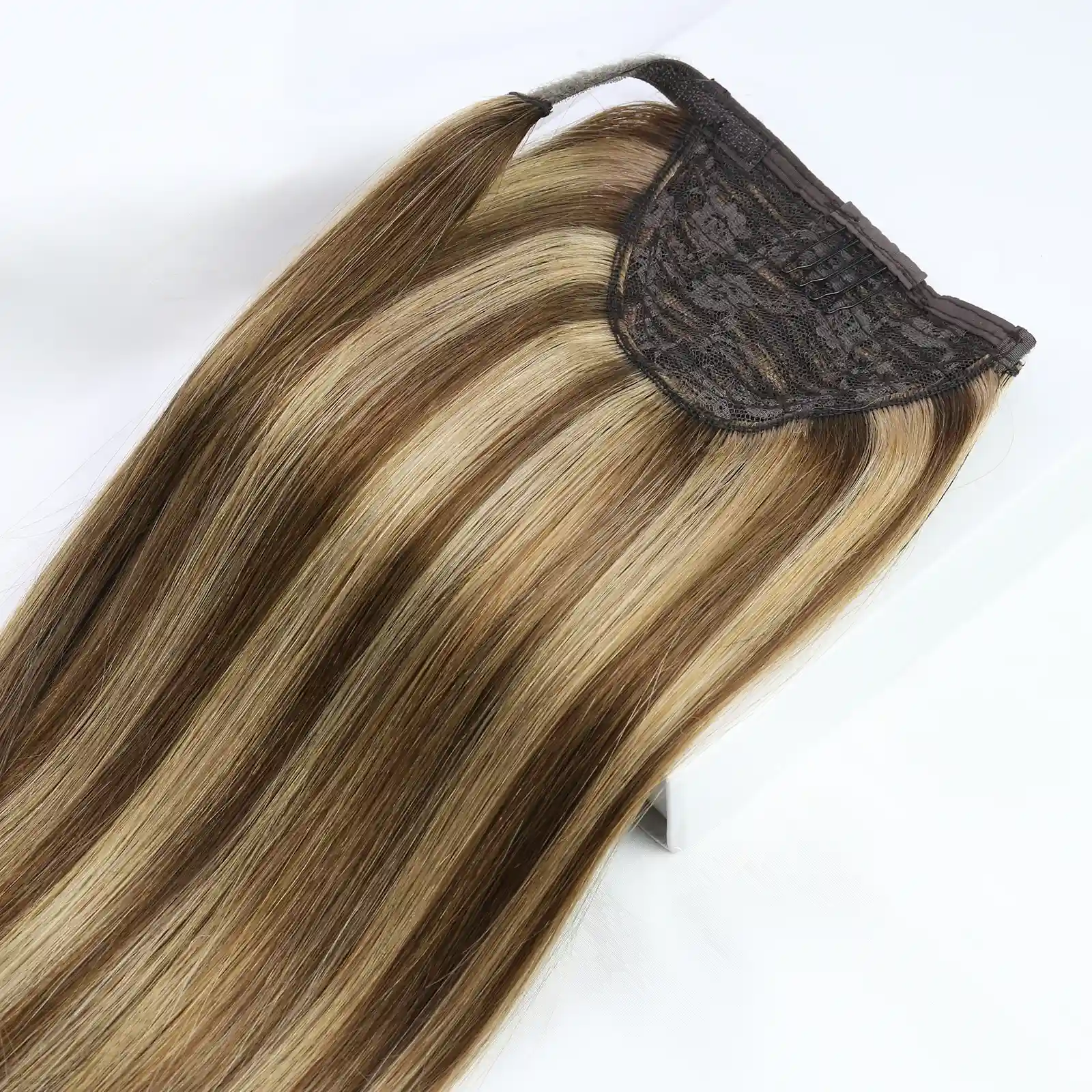
As a convenient way to quickly add hair volume, ponytail extensions started to trend in the mid-2000s, often used in sports or daily looks. With a simple design fixed by clips or rubber bands, they became iconic accessories for teenagers and athletes.
Mid-2000s
Pre-Bonded Extensions

In the mid-2000s, pre-bonded extension technologies (such as I-Tip) based on hot melt glue or keratin glue matured. These extensions secure hair strands to natural hair by heating the adhesive, offering long-lasting results (3-6 months) and becoming a mainstream choice in high-end salons.
2007
Micro-Link Extensions
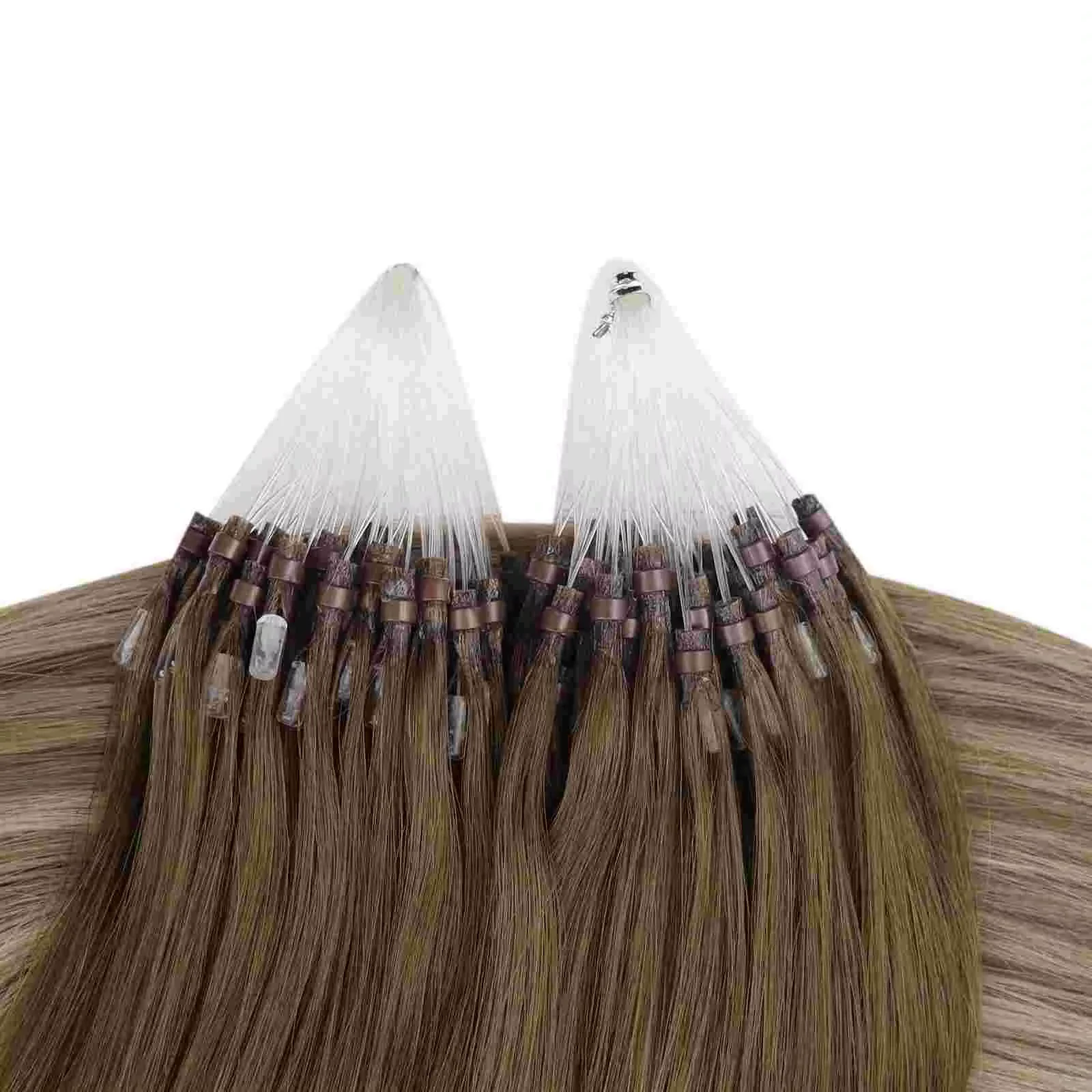
In 2007, Burkart launched the “Micro-Link™” technology, which uses small metal or silicone rings to secure hair strands, reducing damage to natural hair. This extension method gained popularity for its invisibility and adjustability, particularly appealing to users seeking natural-looking results.
Mid-2010s
Tape-In Extensions

In 2012, machine-made seamless hair extension technologies introduced tape-in extensions for the first time. These extensions attach hair wefts to natural hair using double-sided tape, featuring short application time and high concealment.
Late 2010s
Halo Hair
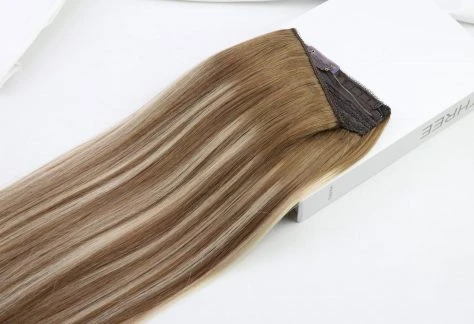
In the late 2010s, halo hair secures hair wefts with an invisible wire, requiring no cutting or chemical treatment. This “damage-free extension” quickly gained popularity for its convenience and comfort, ideal for daily wear and short-term styling.
The Future: Smart Extensions & Sustainability
Innovations are accelerating:
- Biodegradable bonds and recycled synthetic fibers.
- Heat-reactive fibers that “curl on demand.”
- AR fitting apps to preview styles pre-purchase.
“Extensions aren’t about hiding—they’re about reinvention. Every strand tells a story of confidence.” — Celebrity stylist David Gold
Demand for Eco-Friendliness and Customization
In recent years, eco-friendly materials (such as reusable tape-in extensions) and personalized services (e.g., custom hair color and texture) have become trends. Tutorials on online platforms and social media (e.g., TikTok) have further promoted the popularity of hair extension technologies, allowing users to purchase products and apply them at home independently.
Ready to Transform?
From Cleopatra’s braids to today’s tape-ins, hair extensions let you rewrite your look overnight. Whether you seek Egyptian-inspired thickness, rockstar-length ponytails, or effortless volume, the perfect match awaits.
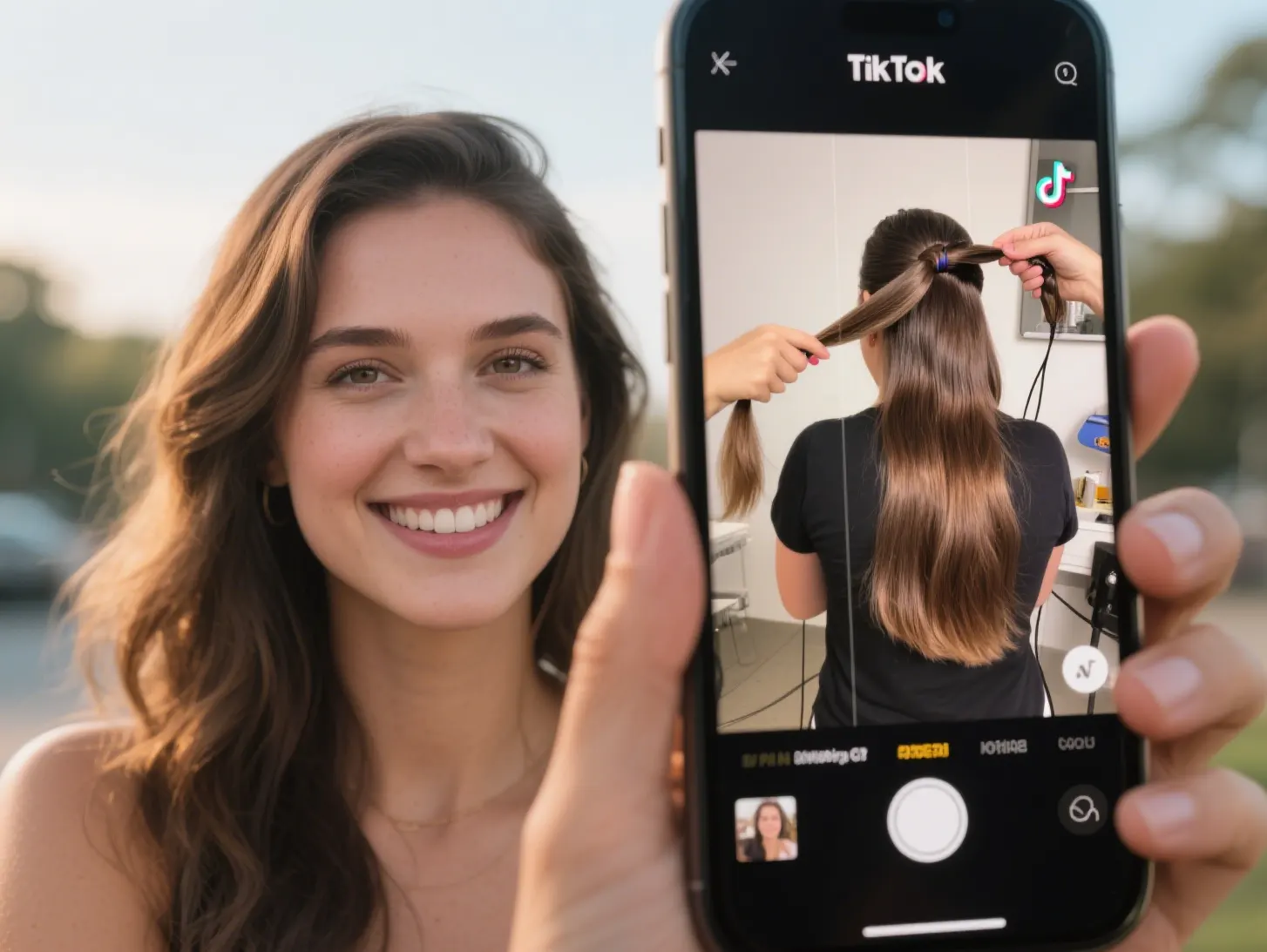
Contact Us
-
4 Holes PU Hair: Next Gen of Tape Ins
✨The Innovative Way to Breathe New Life into Tape-Ins Transform Elegantly, Shine Naturally — Full Shine’s Latest Upgrade for Seamless, […]
-
Brat Girl’s Hair Extensions Trend
This summer, the internet was captivated by a vibrant hue of acid green. This isn’t just a color; it’s the […]
-
How Hair Extensions Transform Lives
Here at [Full Shine Hair], we don’t just sell hair. We provide a key to unlocking a new level of […]